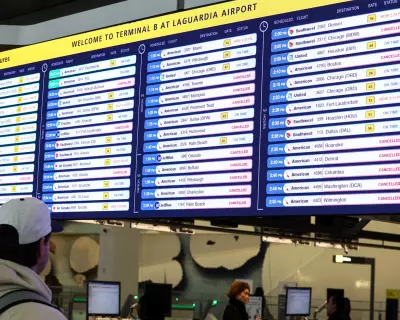Entertainment
MAFS Intruder Groom's Bizarre Vows and Awkward Reception Shock Bride
Married At First Sight's new intruder groom Joel Moses stunned bride Juliette Chae with cringeworthy vows and an awkward reception performance, leaving their future in doubt.
Sports
Four Premier League Stars Face Racist Abuse in 'Appalling Weekend' for Football
Chelsea's Wesley Fofana, Burnley's Hannibal Mejbri, and two other Premier League players were subjected to racist abuse online over the weekend, prompting condemnation from anti-discrimination groups.
Politics
Five Jockeys Fined After Walking Pace Start to Race at Naas
All five riders in a Listed Juvenile Hurdle at Naas were fined €250 each after spending the first minute of the race walking, not running, sparking criticism from punters and pundits.
Crime
Three Lives Lost in Northern Ireland Crash: Father-of-Six Among Victims
A tragic road collision in Northern Ireland has claimed the lives of three people, including a father-of-six, with four others injured. The community mourns as families are plunged into grief.
Business
Health
Weather
NYC Mayor Declares Emergency and Travel Ban for Blizzard
New York City Mayor Zohran Mamdani has declared a local state of emergency and issued a travel ban as the city prepares for its first dangerous blizzard in over a decade, with up to 24 inches of snow forecast.
NYC Mayor Declares Emergency and Implements Travel Ban
New York City Mayor Zohran Mamdani has declared a local state of emergency and ordered a travel ban as the city prepares for its worst blizzard in over a decade, with schools closed and non-essential vehicles restricted.
Thailand Hit by 6.5 Magnitude Earthquake After Borneo Quake
A significant magnitude 6.5 earthquake has struck Thailand, as reported by the German Research Centre for Geosciences. This seismic event follows a magnitude 6.8 quake in Borneo, highlighting regional tectonic activity.
US Northeast Braces for Blizzard with Heavy Snow and High Winds
A severe winter storm is hitting the US Northeast, with blizzard warnings from Maryland to Massachusetts, over 6,000 flights cancelled, and residents urged to stay indoors.
East Coast Blizzard: 12,000 Flights Delayed, 18 Inches Snow Forecast
A severe nor'easter batters the East Coast, causing massive flight cancellations and delays while forecasters predict up to 18 inches of snow and dangerous blizzard conditions across multiple states.
Tech
Get Updates
Subscribe to our newsletter to receive the latest updates in your inbox!
We hate spammers and never send spam
Environment
UK Geography Quiz: Test Your Knowledge
Challenge yourself with 100 multiple-choice questions about the geography of the United Kingdom. Perfect for students, travelers, and geography enthusiasts.











































